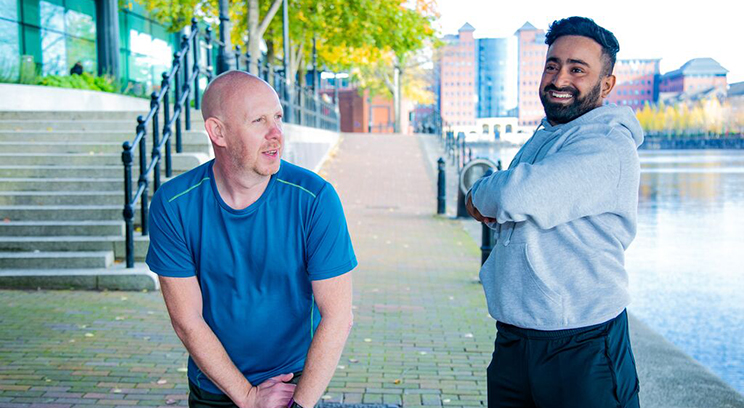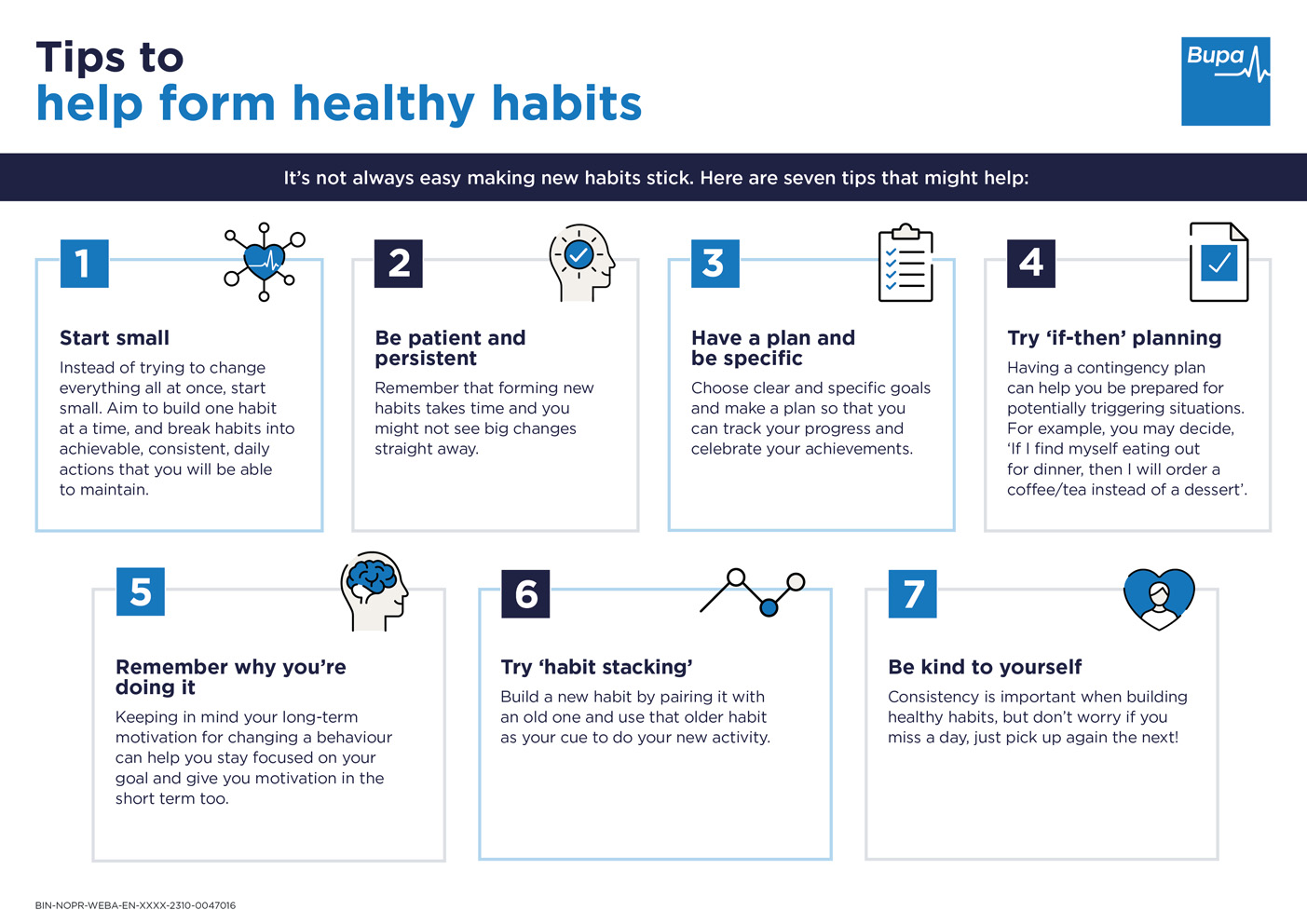Whether it’s eating a balanced diet, engaging in regular physical activity, drinking enough water, or getting enough quality sleep, healthy habits can be hugely beneficial for our mental and physical health. However, while the benefits are clear, creating healthy habits can be easier said than done.
Habit forming doesn’t happen overnight. On average, it takes around 66 days to form a habit but can take much longer1. Habit forming begins with us incorporating the behaviour into our routine and consciously performing it until it becomes so embedded that it requires little or no thought. Not all habits are created equal though; while it might be easy to form habits around pleasurable, convenient behaviours that may be less healthy for us, it can be more challenging trying to make healthy habits stick. Less healthy habits often provide an immediate reward (for example, foods containing sugar excite our taste buds and can reduce feelings of stress in the short term2), whereas it often takes longer to see or feel the benefits of making healthier choices.
To feel that reward sooner, you could try ‘temptation bundling’. This involves pairing the activity you’re not excited about, with an activity that you are. For example, you could try listening to your favourite podcast while at the gym or watching your favourite show while doing household chores. This can help you find the short-term motivation to accomplish the tasks you know will pay off in the long term and in the process, build healthy habits.
It can also help to start with the simplest form of the behaviour that you’d like to make into a habit. It’s often easier to make smaller changes than big ones, and trying to take on too much, too soon, can be setting yourself up for disappointment. Try committing yourself to five minutes of meditation each day rather than 20 minutes, or schedule time to read a few pages of a book each day, rather than a whole book each week. Creating healthy habits benefits from having a long-term outlook, and there’s no reason why goals can’t be increased over time.
Another effective way to make a new habit stick is to pair it with an old one. This is known as ‘habit stacking’, with the old habit acting as a prompt, reminding you that it’s time to do your new activity. For example, you could ‘stack’ your new, soon-to-be habit of flossing, with your established habit of brushing your teeth. Other well-established habits to use as helpful cues for your new ones could include waking up, mealtimes, and evening routines.
Remember: always be prepared to make a change if you find things aren’t working. It might be that you’ll find it easier to do your new activity at a different time of the day than you originally thought, so take some time to experiment and see what works for you.
The following infographic contains helpful tips on how to build healthy habits that stick.





